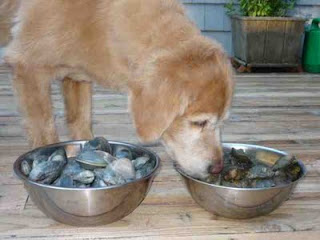I work in Westchester, NY, where the average home is huge, the average income is huger, and the average cost of food is enough to just about make me gasp, which it did recently when I went into Bedford to do a little bit of shopping, and nearly had a stress-induced asthma attack.
Most people know Bedford as the place where Martha lives, and (more recently) the place where Qaddafi considered setting up digs while he was in town addressing the United Nations the other day, right before he was pelted with tomatoes. But the most important thing about Bedford that I’ve learned is that it is adorably quaint; people who live there tend to be fiercely protective of its reputation; and the residents really must love local food. A lot. Because in a stroke of utter brilliance, someone opened what is effectively a CSA/store, right off Main Street: either you can be a member and pay in at the beginning of the year (and each purchase gets deducted), or you can just go there and shop like everyone else. Because I don’t actually live in Bedford, and because there are no CSAs near where I do live, in Connecticut, that’s what I do when I’m compelled to plunk down big bucks for things like recently-dug potatoes, artisanally-made cheeses, and fresh, local meats. Most recently, I paid $5.99 a pound for a small bag of spuds which, I have to say, nearly knocked me right off my clogs.
And this is the problem, isn’t it? I mean, who on earth would actually choose to eat dreck that’s been shipped from thousands of miles away and sprayed with all manner of hell in order to survive the trip, instead of something grown and harvested locally? I wouldn’t. But the thing is, I can’t afford a lot of it on a regular basis, and neither can most people. So local food has become something of a treat for me; when I have something to celebrate, I shell out bucks for tomatoes that cost the same as my monthly cell phone bill. I once bought a local Virginia chicken (I was staying with my cousins in Alexandria) that cost $17. Sure, it amortized across three meals, but still.
That said, it nags and gnaws at me because people, myself included, inevitably have to make decisions: bills or tomato? Commuter ticket or 3 pound, $70 leg of lamb? It’s a conundrum. It’s even more aggravating when you realize that the local food you’re buying for a fortune was local to where the farmer you’re buying it from lives, and not necessarily where you live or even where you’re handing over the cash. So by the time it gets to your kitchen, it’s not really local anymore, is it?
Which is why when I had the opportunity last Saturday to eat the most local food I’ve ever had, picked with my own two hands and cooked maybe an hour later, I jumped at it. Clamming the day after Rosh Hashanah is a bit fraught, though, and with the understanding that shellfish is profoundly unkosher, I decided that there was perhaps no better way to spend the holiday: harvesting the fruits of the earth and enjoying them almost immediately, less than 3 miles from where they were picked, with people I love.
During low tide in the late afternoon, Susan and our best friends, Lisa and Alyssa, waded out into the bay near their home outside of East Hampton; I managed not to fall in, which was a stunning development since I am a water klutz. With short-handled garden rakes in hand, we started digging and within an hour had managed to collect at least 4 dozen clams–immense cherrystones and smaller, more delicate steamers–along with at least a dozen fresh oysters. I was mystified as I dug: if I irritated a clam, would it snap shut on my fingers? Do these things happen? I don’t know. I’m from Queens, where they don’t clam much. Alyssa, who knows shellfish because she’s from Maryland, just laughed.
Back at the house, Alyssa opened some of the smaller ones and we sucked them back raw with their delicious liquor; the larger ones were plunked down directly on the grill, and then dunked into garlic butter spiked with white wine vinegar and pepper. The next day, Susan and I took home a few dozen cherrystones and made the sweetest, simple, most delicate-tasting clam sauce I’ve ever had, and which has spoiled me, forever.
Clamming, I discovered, is back-breaking work, as is the harvesting of pretty much anything. Maybe this is part of why local food is so insanely expensive; we all know the truth about who harvests cheaper food, and the fact of underpaid laborers and cost ceilings. The fact is, though, that if you want to eat local food, you’ll be faced with two choices: paying crazy sums for it, or growing and/or harvesting it yourself, and reaping the delicious rewards while also experiencing what I call Good Tired. The latter may be the cheaper way to go, although it certainly isn’t easy.





